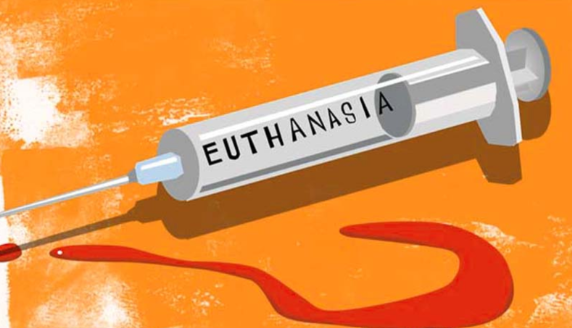Euthanasia is a highly controversial topic and one that has stirred up much debate. It is one that also challenges human morality at levels that make many very uncomfortable.
Nevertheless, it is one that is worth discussing because it touches on two extremely important aspects that every human being can relate to. It picks life and death.
Let us define it first and explain the key terms employed in this piece. Both euthanasia and P.A.S.[physician assisted suicide] refer to the intentional act that shortens the life of a patient and this act involves the act of a physician. Let’s clarify that P.A.S. is when the physician provides medication that the patient will self-administer. This medication will then end the patient’s life. Therefore, it’s the process of enabling the patient to take their own life.
Euthanasia is a little bit different. Here, the medical team will intervene directly and actively to hasten the patient’s death and in this context we hear of different types of euthanasia. For instance, voluntary and involuntary euthanasia. Voluntary euthanasia is when the patient has given the consent to the physician to intervene and end the patient’s life. Involuntary euthanasia is when the patients are not in a position to make a decision themselves. The physician’s medical opinion to end the life will prevail and in these cases, it is assumed that if the patient had the capacity to agree, they would have adopted the same medical opinion.
Instead of dissecting each of these forms, we need to look at their common goal which is to prematurely end a human life.
Death has always been and will always be seen as an enemy. Saint Paul spoke of death as the last enemy but it should not be feared and we should never bring it on ourselves without a divine purpose. In the case of euthanasia, what people fear is not death itself but the process that is leading them to death: the pain, the suffering, the estrangement that makes life worthful living. Therefore people will choose euthanasia for a quick and easy death which they consider as the more honourable way to end one’s life.
Instead of welcoming death which is inevitable, we fight it. Ironically, euthanasia comes from two Greek words: the prefix ‘eu’ meaning ‘easy’ and ‘thanatos’ which means ‘death’. So euthanasia means ‘an easy death.’ A good death is one where we can say that we fought a good fight, we finished the race, until the very last breath that we have been granted.
Here is what Divine Law tells us, which Humanists Malta does not believe in: “Do not invite death by the error of your life, nor bring on destruction by the works of your hands because God did not make death, and he does not delight in the death of the living.” This means that the purpose of life on earth is to live. Though physical death is inevitable, through the resurrection of Christ death itself has lost its sting, giving us a gateway to eternal glory. Irrespective of whether you believe in God or not, we are responsible for our own lives and our own health. When we fail to do so, we then cannot invite death.
However, irrespective of what Humanists Malta tell you, all human life belongs to the Creator, to God. It is not your own. It has never been and it will never be. Our responsibility lies in taking care of it and cherishing it. But no other being has the right to take on God’s role and decide about the ending of that life, when they didn’t even decide the beginning of it, let alone! Can you see the connection between euthanasia [ending of life] and abortion [beginning of life] as agendas? But this is what this century is about. It is about the “I”. It is about what I want. It is about people becoming gods. So, the argument of Humanists Malta that some people see their life as being their own, is erroneous. All souls belong to God.
Another argument put forth by Humanists Malta is that a quick and easy death on one’s own terms is more honourable than a death of one that is not in control. This is the mindset of Humanists Malta. What is honourable is life itself. There’s nothing about death which is honourable. There’s nothing about death which is considered honourable. In suffering, there is life. In suffering, there is growth. In suffering, there is change. Even when this suffering is on the death bed.
What we should be fearing is not the death of the flesh. But the death of the soul, including the death of the soul of the living which is leading to eternal alienation from the grounded spiritual path.
What Humanists Malta is doing is giving you the short cut. After living a life of snowflakes, and go from one day to the next like zombies, you can then also kill yourself the minute it starts getting tough – so even your final stages can be another way out for a quick and easy ending.

